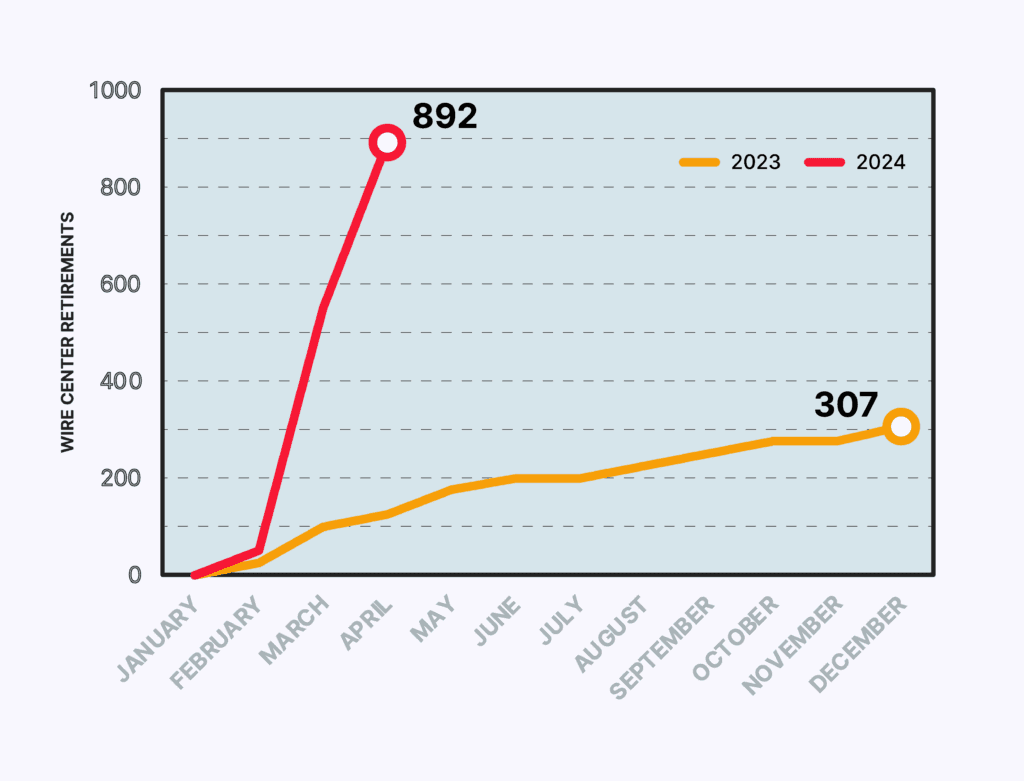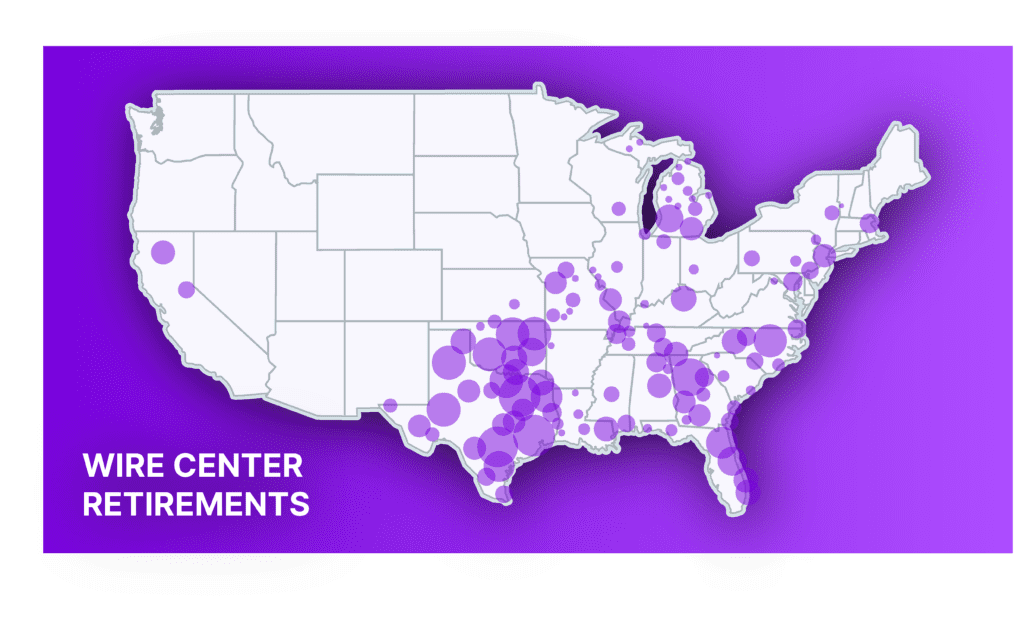
In 2024, the telecommunications landscape is witnessing a significant transformation as Plain Old Telephone Service (POTS) lines, the traditional copper wire-based telephony, are being decommissioned at an unprecedented rate. This movement is primarily driven by major telecommunications providers strategic decision to phase out outdated copper networks, a trend that is particularly prominent in the Southern and Midwestern United States.
The Scale of Copper POTS Decommissioning in 2024: A Comparative Overview
In 2024, the telecommunications industry is seeing a significant overhaul, with an emphasis on decommissioning outdated wire centers. AT&T is leading this wave with 61 notices for decommissioning 863 copper wire centers. In addition to AT&T, other carriers are also part of this shift, with a collective 34 notices that are set to decommission 41 wire centers.

This series of decommissioning notices reflects a clear direction towards modernization within the industry, with companies phasing out old infrastructure to make way for new technology. The focus on these changes, especially in regions like Texas and other parts of the South, points to a broader initiative for a more advanced telecommunications network. Assuming the current trend persists, the next three years could see a significant transformation in the telecom sector’s infrastructure.

Impact on Enterprises: Navigating a New Telecommunications Era
The decommissioning of POTS lines represents more than just a technological overhaul; it signifies a fundamental change in how businesses communicate. Enterprises relying on traditional copper lines for alarms, fax, voice, and other services are now facing potential disruptions. This shift is particularly impactful for businesses that have not yet fully embraced digital alternatives, as the reliability and familiarity of copper are still valued in many industries.
Why Enterprises Are Affected
Reliability and Compatibility
Many older analog systems and equipment are designed to work specifically with copper lines, meaning expensive upgrades are necessary to maintain functionality.
Regulatory and Compliance Issues
Certain industries have specific compliance requirements that may be affected by the type of communication infrastructure they use.
Cost Implications
Transitioning to new technologies often involves initial capital outlay, training, and potential downtime, which can be significant for smaller enterprises.
Mitigation Strategies for Enterprises
As the industry moves away from copper, enterprises must proactively manage this transition to mitigate risks and capitalize on the benefits of modern telecommunications technologies. Here are some strategies businesses can adopt:
Strategic Planning and Assessment
Businesses should conduct a thorough assessment of their current telecommunication needs and infrastructure to identify critical dependencies on POTS lines.
Exploring Alternatives
There are numerous alternatives to traditional copper lines, such as VoIP (Voice over Internet Protocol), wireless solutions, and fiber optics. Each of these technologies offers different benefits and may be suitable for different business needs. To explore cloud-enabled solutions tailored to your business, speak with a MarketSpark expert today.
Partnering with Reliable Providers
Choosing a telecommunications provider that can offer robust support during the transition is crucial. Enterprises should look for providers that not only offer modern solutions but also provide guidance and support during the transition.
Phased Implementation
Instead of a complete overhaul, a phased approach can allow for smoother transition and less disruption to operations. This strategy also allows for testing and adjustments as needed.
Conclusion
The decommissioning of copper POTS lines is a significant milestone in the evolution of telecommunications. While it poses challenges, particularly for businesses heavily reliant on traditional systems, it also offers an opportunity to adopt more efficient, cost-effective, and resilient communication solutions. Enterprises that plan and act proactively will not only navigate this transition more effectively but also position themselves advantageously in a rapidly evolving digital landscape. Discover how MarketSpark can streamline your move to advanced technologies with our comprehensive POTS replacement solutions.

Recent Comments